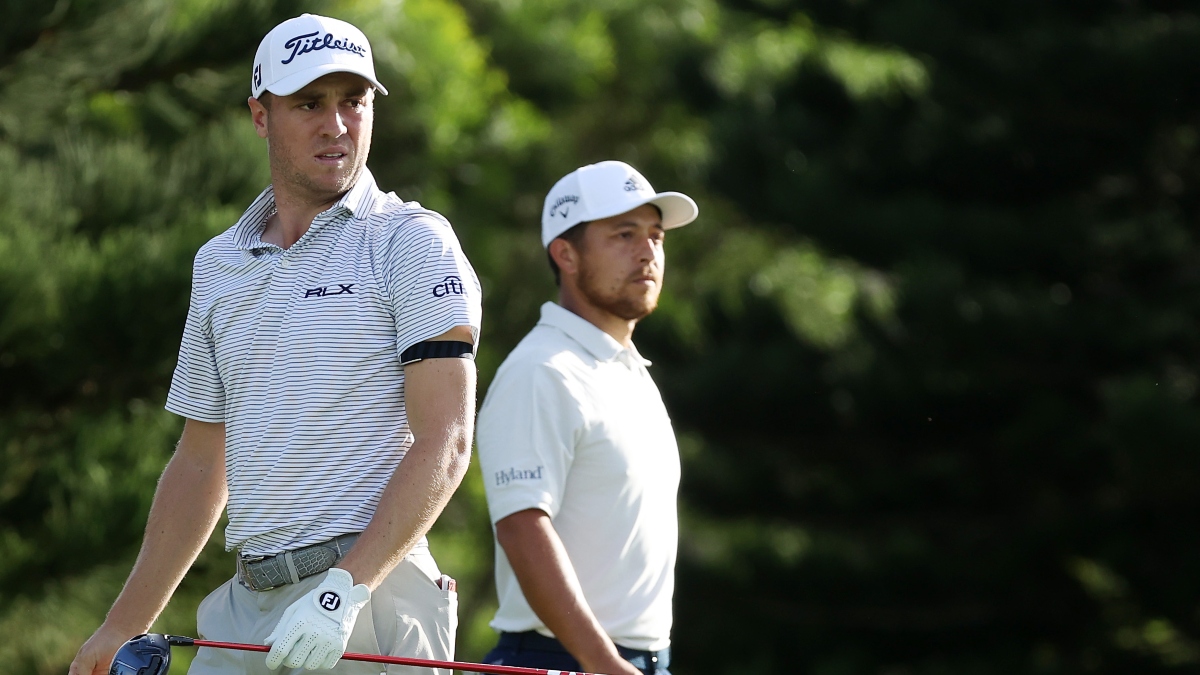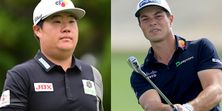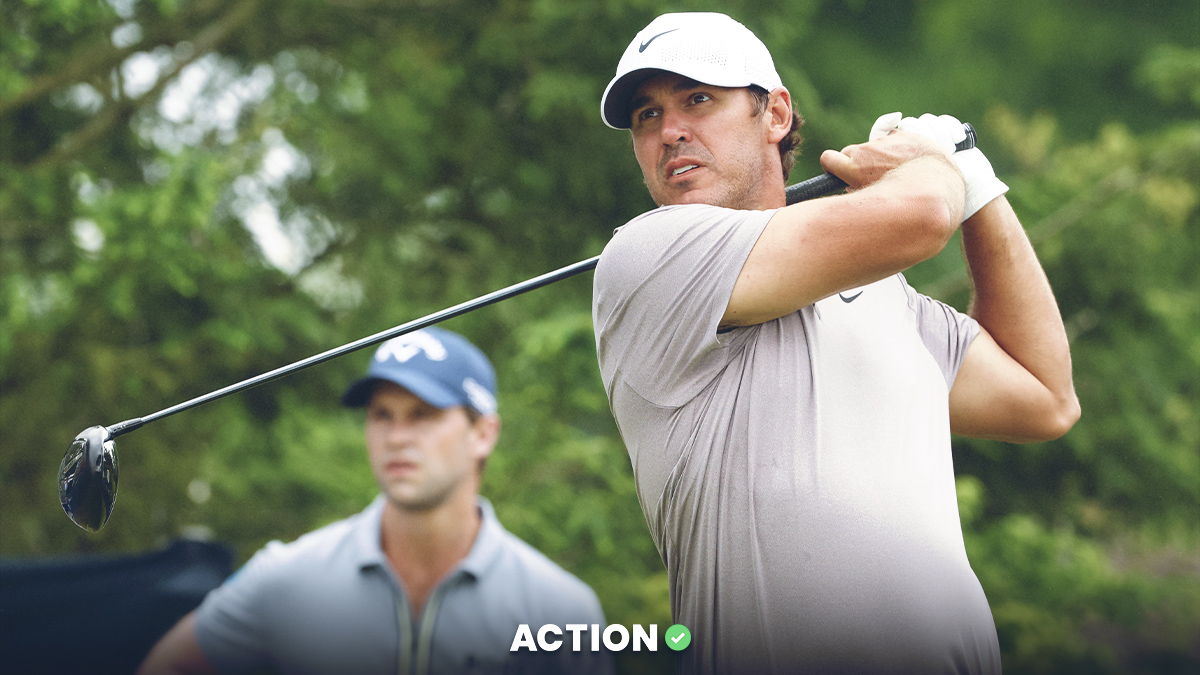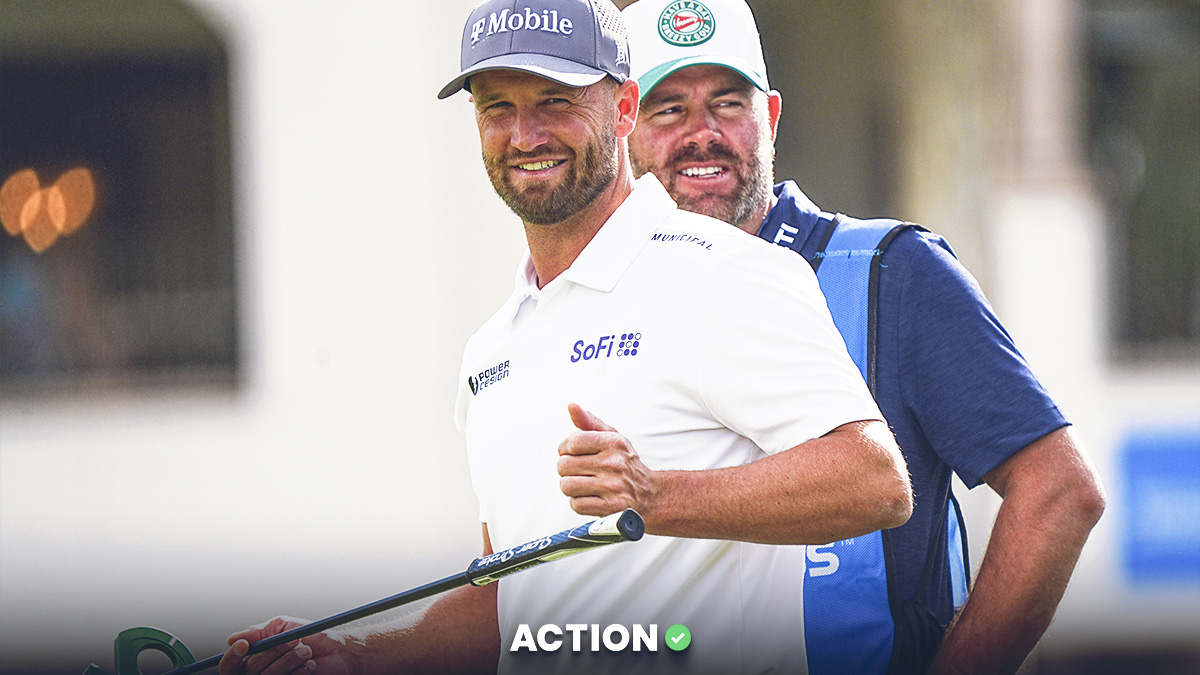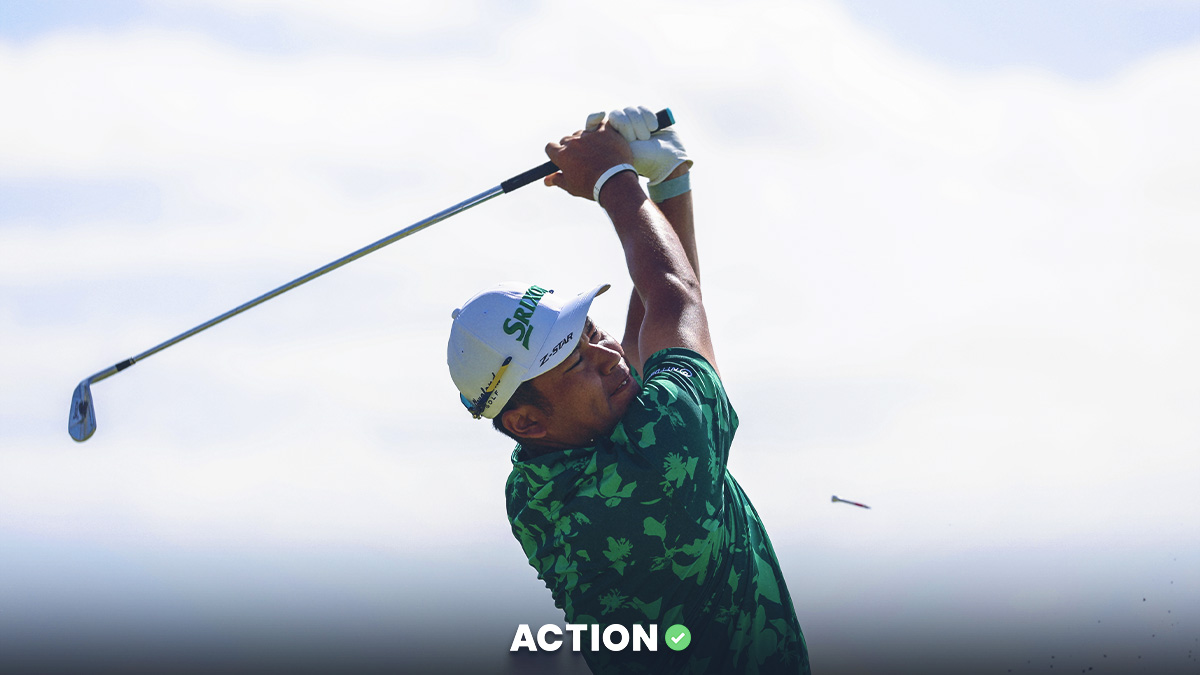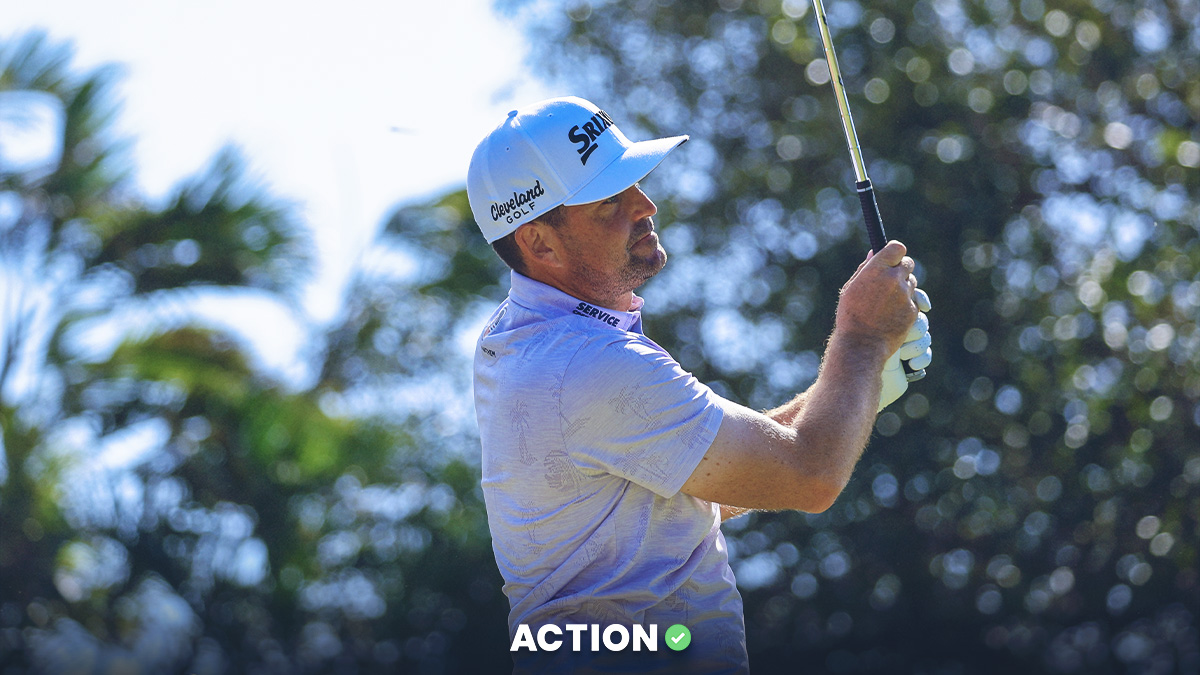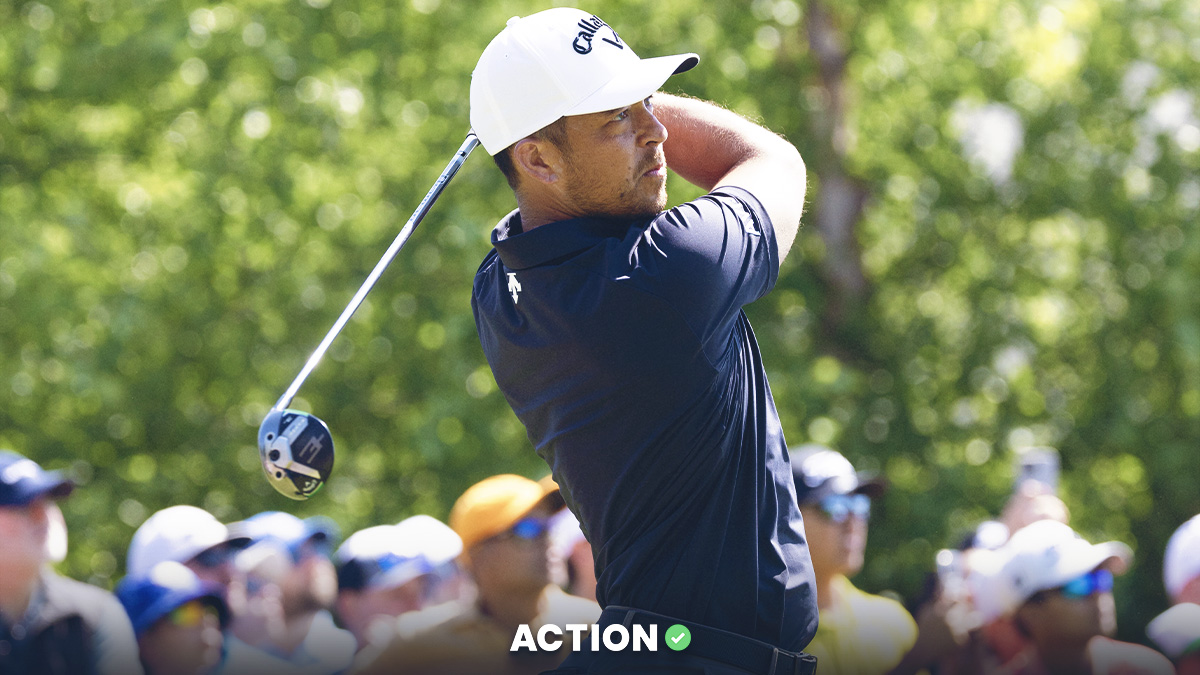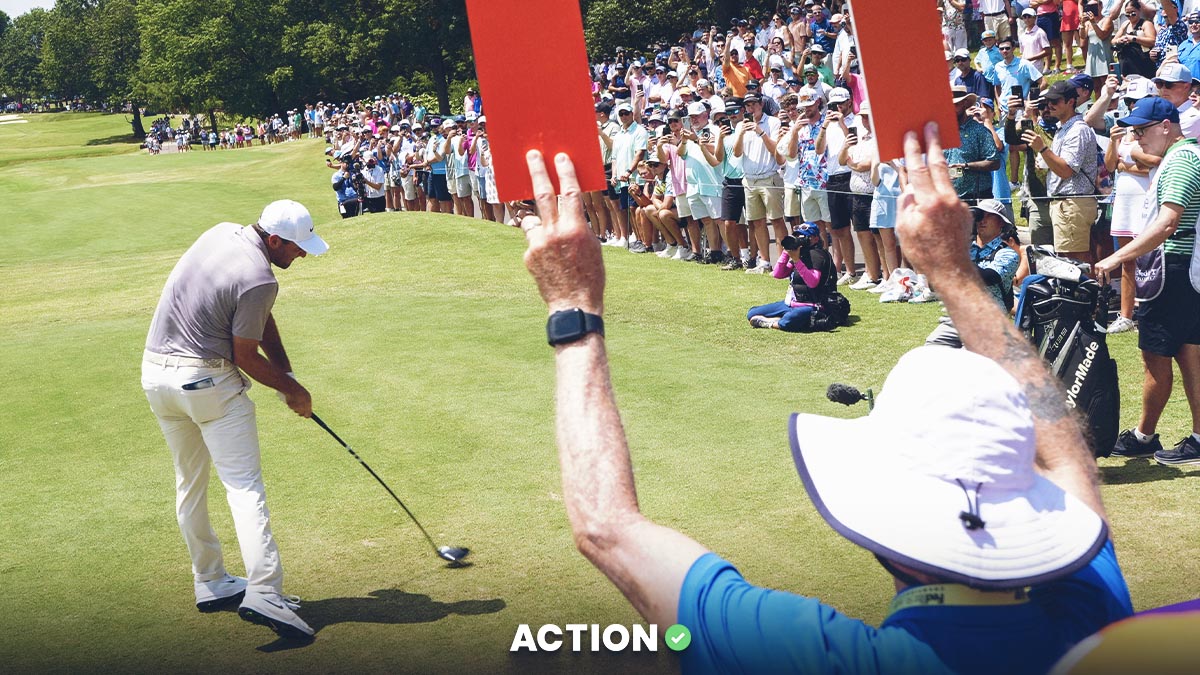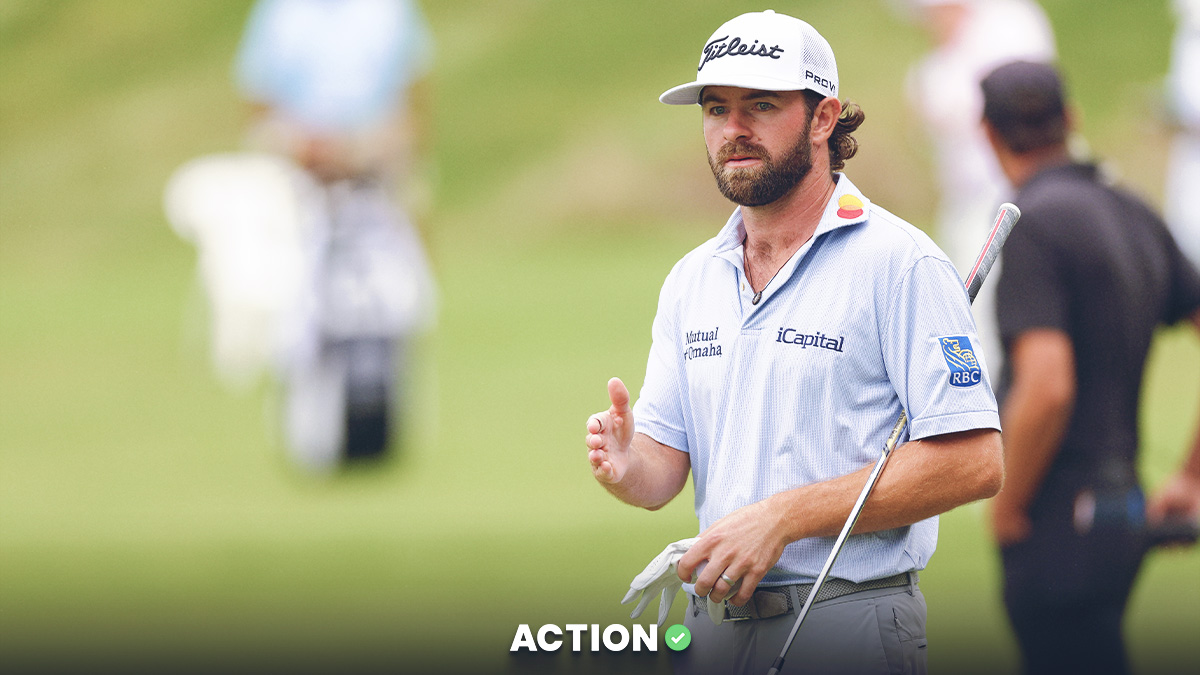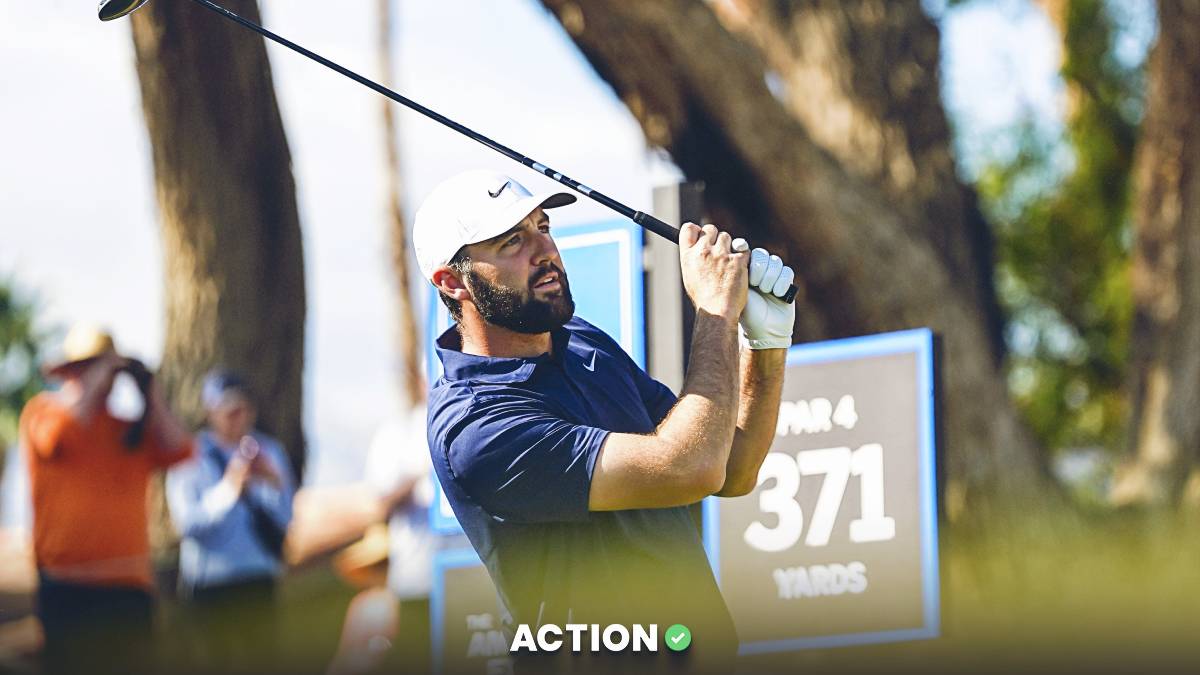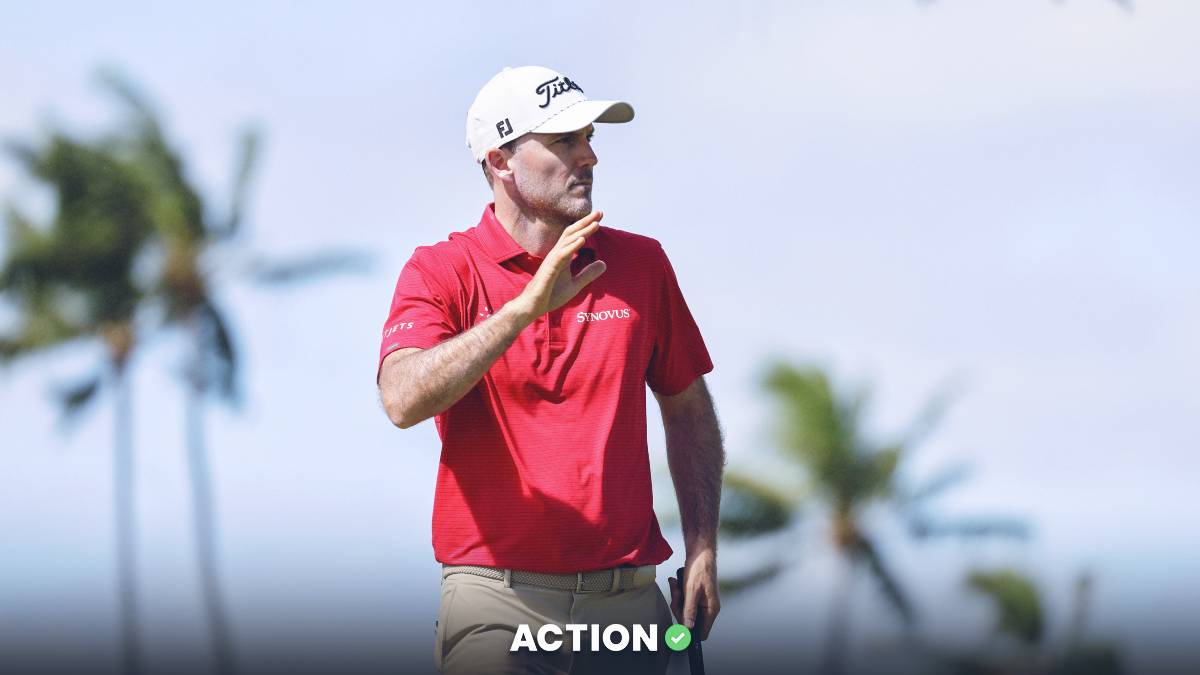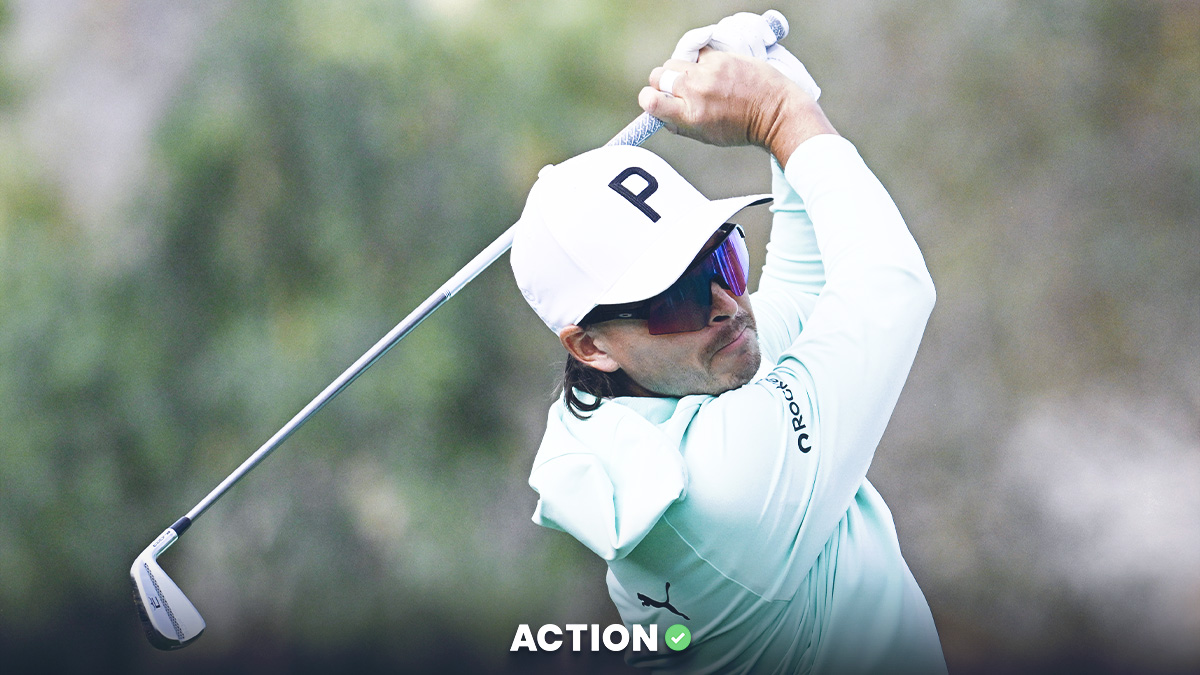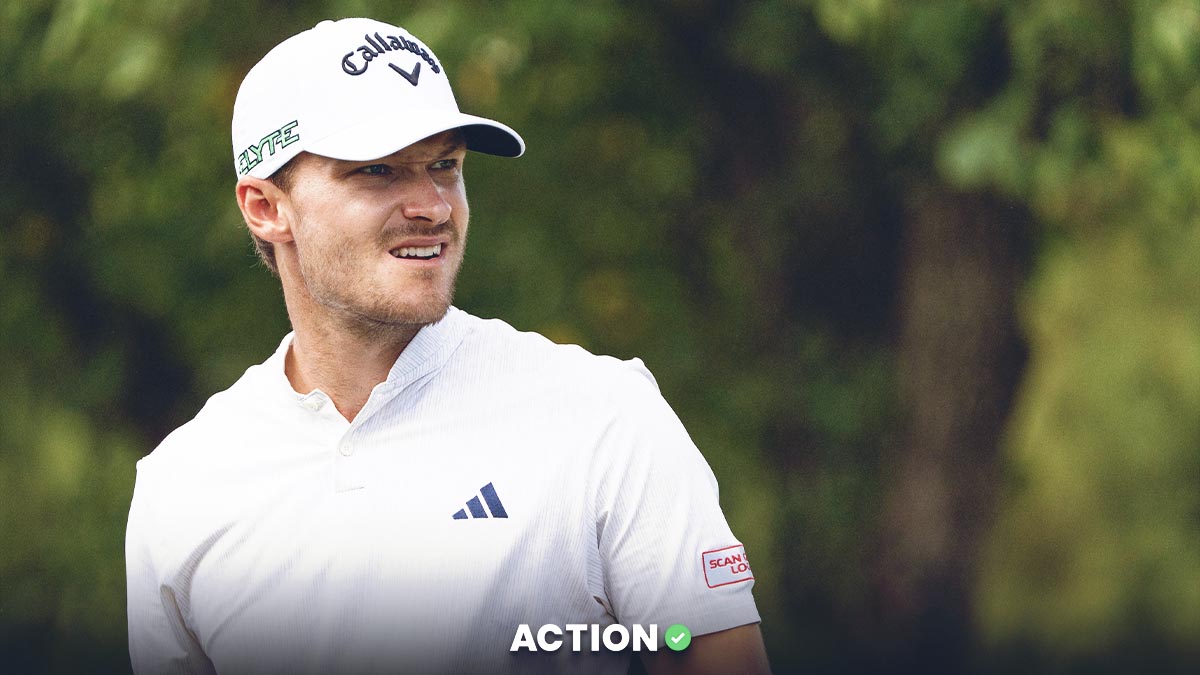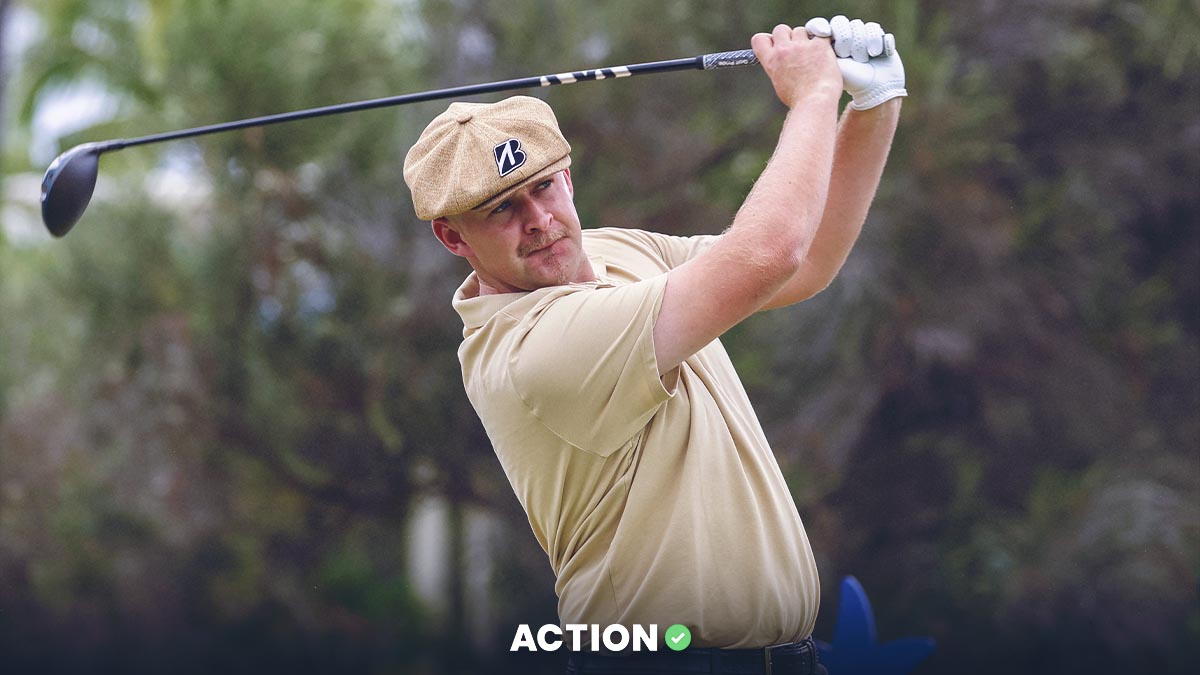Over the past few years, I’ve often been asked to analyze the massive growth potential of betting on professional golf. Chances are, if you’re reading this, you already understand how much it has evolved and how much more it can continue to be developed.
If not, try this little exercise: Name as many PGA Tour players as you can. For those betting the sport on a regular basis, I can almost guarantee that number is way bigger than it would’ve been a few years ago.
This growth potential, though, doesn’t begin and end with just betting.
We’ve recently witnessed a greater interest in personal engagement formats such as season-long fantasy leagues and DFS, but I’m not sure any niche corner of this world has grown like One and Done pools.
Not that long ago, even the most ardent golf fan would’ve looked at you funny for bringing up an “OAD,” but these are becoming more common than ever, a natural complement to betting and playing DFS.
For the still-uninitiated, OADs are like survivor pools for golf – without the whole getting-knocked-out-in-the-first-week-when-the-Titans-inexplicably-lose-to-the-Giants-at-home thing. (Not that I’m bitter or anything.) The idea is that poolsters each pick one player for every tournament throughout the year, but can’t pick any one more than once. You make what your player makes each week.
I’ve been playing these pools for a quarter-century now, and like any pool, there are plenty of variations. I’m in one where all picks are made before the first week, one where there are a few checkpoints throughout the year, and one where picks are made every week. I’m in a few that use money earned and one that uses FedEx Cup points. I’m in one with no defending champions allowed, one with two selections for the biggest events and one with more earnings available for the majors.
There are plenty of differing rules for playing OADs, which leads to my first rule for those who are just now jumping in: Know the rules. If your pool offers, say, double the points for all elevated events, you should plan to slot the best players into those events. If there’s no bonus for the majors, don’t feel like you need to use the best of the best there.
As for other rules – or at least suggestions – I wrote the following recommendations a few years ago and haven’t found a reason to not keep consulting with these, so here they are again, with a few notable updates.
Give yourself a chance.
There’s nothing worse than taking a DNS, watching your player’s name never show up on the entry list while your fellow pool competitors wave to you from the passing lane. That’s inexcusable if you make picks weekly, but largely avoidable even if you make all picks prior to the first event. You’ll always endure some MCs, but do some research and pick guys who should at least show up.
Nobody is Nostradamus.
Don’t get too discouraged. You might start out in DFL on your pool’s leaderboard after the West Coast Swing, but things can change in a hurry. While somebody might peel off a few early wins, it’s difficult to maintain consistency in these pools. Just like a pro who shoots 78 in the first round, keep your head up and stay positive.
Don’t overrate the majors.
I used to break this rule every year. They’re the four biggest tournaments, I’d reason, so I should pick four of the best players. Sure, there’s more money available at the majors, but how often do we see chalk anyway?
Don’t be afraid to get a little contrarian.
For example, you might like Rory McIlroy at the Masters, but really like him at the Wells Fargo Championship, which he’s won three times. Chances are, you’ll get a player with tremendous win equity and own some leverage over your competition, who will largely save him for a bigger event.
Remember the young 'uns.
This always happens: A month into the calendar, an up-and-comer will have posted three top 10s and you’ll be kicking yourself for leaving him off your final list.
It’s impossible to predict how every Korn Ferry Tour promotion will perform, but don’t get so locked into past results that you forget to include guys like Taylor Montgomery and Tyson Alexander on your list.
Play some hunches.
You know that thing I just said about history not always repeating itself? Sure, there are times when you look at a player’s recent results at an event, see he finished 2nd-5th-3rd the last three years, and lock him in. Nothing wrong with that.
But don’t fall into the trap of thinking that just because a player was top five the previous year, he’ll easily do it again. In particular, I like looking for outlier scores. If you notice a player finished 29th at a tourney with three rounds of 68 and a third-round 79, there’s a good chance that course fits his eye and he simply had one bad day.
OK, that’s enough general advice for now. Let’s get our hands a little dirty.
For this article, I’ve included three potential selections at every PGA Tour stop.
Old Reliable (OR): A player who traditionally fares well at that given event.
Course Horse (CH): A player whose game should match up with the host venue.
Wild Card (WC): A player whom I particularly like at a specific event, whether because of an underlying narrative, a home-field advantage or just as a “hunchy” play.
Here are my picks, based on a standard OAD league (which means no defending champions included).
Sentry Tournament of Champions (Jan. 5-8)
- OR: Xander Schauffele
- CH: Sungjae Im
- WC: Trey Mullinax
If indeed you’re starting off your OAD pool at the first event of ’23, you’ll immediately be conflicted by the quandary of the limited-field, no-cut event. Two schools of thought here: 1) The best of the best will never have greater win equity than competing against only 30-something other players, making any of them an appetizing choice; or 2) Everybody cashes a check, so there’s no need to burn one of the elite guys. The quandary, of course, is that neither idea is always right nor always wrong.
Sony Open in Hawaii (Jan. 12-15)
- OR: Russell Henley
- CH: Collin Morikawa
- WC: Corey Conners
One of my favorite not-so-subtle pro tips of the year: There is evidentiary data that suggests that players who competed at Kapalua the previous week have an advantage here. Granted, they’re often the best players in the field, since they qualified for the opener, but an extra week to shake off the cobwebs and get accustomed to the Hawaiian time zone has proven to be a significant advantage.
The American Express (Jan. 19-22)
- OR: Patrick Cantlay
- CH: Sahith Theegala
- WC: Andrew Putnam
Every winner since 2008 has broken the 20-under barrier, and the last five have closed at an average total of 24-under. The advice here is to select a player who can make birdies in bunches – which should help narrow down your player pool to the top 99% of the PGA Tour membership.
Farmers Insurance Open (Jan. 25-28)
- OR: Tony Finau
- CH: Cameron Young
- WC: Taylor Montgomery
I’m pretty sure I’ve picked Finau at Torrey Pines for each of the past seven years (he’s finished 18th-4th-6th-13th-6th-2nd-MC, thank you very much), and now that he’s finally learned how to close, you’d better believe I’m not fading him here.
AT&T Pebble Beach Pro-Am (Feb. 2-5)
- OR: Jordan Spieth
- CH: J.J. Spaun
- WC: Mark Hubbard
In the past decade, the winners’ list at Pebble has included Spieth, Phil Mickelson and Daniel Berger, but also Vaughn Taylor, Ted Potter Jr. and Tom Hoge. I like taking a chance here on a player who excels on shorter venues and poa annua greens.
WM Phoenix Open (Feb. 9-12)
- OR: Hideki Matsuyama
- CH: Keith Mitchell
- WC: Max Homa
As the first of four designated (or elevated) events specifically for 2023 – along with the RBC Heritage, Wells Fargo and Travelers – it would be wise to save a big-time player, considering they should all be present and such tournament delineation also comes with an elevated purse size.
The Genesis Invitational (Feb. 16-19)
- OR: Jon Rahm
- CH: Cameron Young
- WC: Emiliano Grillo
This isn’t a bad place to choose a superstar who might be used by your competitors in majors. Keep your eyes open at Riviera, too, as the final leaderboard could offer some clues as to whom we might see at the U.S. Open, being played at nearby Los Angeles Country Club.
The Honda Classic (Feb. 23-26)
- OR: Shane Lowry
- CH: Tommy Fleetwood
- WC: Denny McCarthy
No winner since 2011 has finished better than 12-under at PGA National, a brutally difficult track that is rendered even tougher by the usual breezy late-winter conditions. There’s a reason why those who can best control their shot trajectory often show up on this leaderboard.
Arnold Palmer Invitational (March 2-5)
- OR: Rory McIlroy
- CH: Matt Fitzpatrick
- WC: Christiaan Bezuidenhout
If the Honda looks tough, it’ll seem like a pitch-and-putt by the time these guys get done with the API. The winner at increasingly devilish Bay Hill hasn’t broken 5-under in two of the last three years, and while scoring here is always wind-dependent, plan to use a player who’s proven he can grind out pars and avoid the big number.
Puerto Rico Open (March 2-5)
- OR: Brice Garnett
- CH: Kevin Yu
- WC: Tyson Alexander
Our first alternate-field event of the year. Whereas most of your fellow poolsters will dismiss these tournaments due to smaller purses and lesser fields, consider this an opportunity to take a shot on a player you like who hasn’t quite popped yet, maybe a rookie who’s still trying to make a name for himself.
The Players Championship (March 9-12)
- OR: Justin Thomas
- CH: Rory McIlroy
- WC: Viktor Hovland
If your pool – like most of 'em – uses money earned to determine standings, pay close attention to the “fifth major,” which last year had a purse of $20 million and winner’s share of $3.6 million. This was once the domain of underrated ball-strikers (K.J. Choi, Stephen Ames, Tim Clark among them), but a recent champions list of Cameron Smith, JT and Rory suggests that you’ll want to employ a big-time player with such a weighty prize at stake.
Valspar Championship (March 16-19)
- OR: Keegan Bradley
- CH: Gary Woodland
- WC: Russell Knox
Host venue Innisbrook seemingly offers up one of the more predictive tourneys each year, but two-time defending champion Sam Burns is ineligible in many OAD formats and Paul Casey, who won the previous two editions of this event, is now playing full-time on LIV. Many other recent contenders have left for that tour, as well.
WGC-Dell Technologies Match Play (March 22-26)
- OR: Billy Horschel
- CH: Alex Noren
- WC: Thomas Pieters
Earlier in this piece, I wrote about the dilemma for limited-field, no-cut events. While a greater win equity suggests taking a chance on some big-name players for these tourneys, the vagaries of the matchplay format will forever leave me fading the top seeds. Make sure your pick is playing – easier said than done for those who have to submit all names at the beginning of the year – but don’t feel the need to take a top-five talent.
Corales Puntacana Championship (March 23-26)
- OR: Nate Lashley
- CH: Thomas Detry
- WC: Alex Smalley
Again – and I can’t stress this enough: If you’re picking a player here who’s even close to making the Match Play field as one of the top 64 players on the OWGR, you’re doing it wrong. In fact, don’t even come close, as LIV players inside that top 64 will likely be ineligible for that event, meaning the alternate list could go deeper than usual.
Valero Texas Open (March 30-April 2)
- OR: Si Woo Kim
- CH: Scott Stallings
- WC: Chris Kirk
It’s difficult enough to predict a wind gust before you take the club back. It’s downright preposterous to predict wind conditions three months ahead of time. That said, it’s Texas. The wind blows. Players who have shown a propensity for playing well in breezy conditions should have an advantage here.
Masters Tournament (April 6-9)
- OR: Rory McIlroy
- CH: Cameron Smith
- WC: Tony Finau
In the old days, before the invention of DFS, the idea of fading a player based on ownership percentage was largely unheard of. It now makes perfect sense, though, even in this type of format. Do I love Rory’s chances at Augusta? Sure, but so does everyone else in my pool. This is a nice place to find some leverage – and that might come in the form of a LIV player who can’t/won’t be used almost anywhere else.
RBC Heritage (April 13-16)
- OR: Kevin Kisner
- CH: Matthew NeSmith
- WC: Tom Kim
I love that the annual festivities at Harbour Town will be an elevated event, giving us a chance to watch the game’s best on one of the most underrated venues. I also hate that it’s an elevated event, because it hurts our chances of hitting the jackpot on a Southern-based ball-striker – the type of player who often used to win this tourney before all the elite guys started showing up.
Zurich Classic of New Orleans (April 20-23)
- OR: Ryan Palmer
- CH: Brendan Steele
- WC: Scott Brown
Consult your local rule sheet for how to handle the PGA Tour’s annual member/member event. Each of my OADs treats this one differently, but if yours simply asks for a single name, this could be a nice way to piggyback a superstar. Take his partner for the week and you get the big-name guy, too.
Mexico Open at Vidanta (April 27-30)
- OR: Sebastian Munoz
- CH: Kurt Kitayama
- WC: Nate Lashley
Last year, Jon Rahm won the inaugural edition of this event, with Tony Finau, Davis Riley and Aaron Wise among those in the top 10. Considering this year’s elevated-event schedule, don’t presume we’ll see a similar field list here.
Wells Fargo Championship (May 4-7)
- OR: Aaron Wise
- CH: Cam Davis
- WC: Keith Mitchell
If you’re looking for some course history, bypass last year’s edition – which was held at TPC Potomac while Quail Hollow was getting prepped for the Presidents Cup – and instead check out previous years. Of course, as a designated event, the big boys should all be here, so don’t be afraid to chase those who fared well in that team event back in the fall, such as defending champion Max Homa and Tom Kim.
AT&T Byron Nelson (May 11-14)
- OR: Jordan Spieth
- CH: Sam Burns
- WC: Beau Hossler
After back-to-back wins at TPC Craig Ranch for K.H. Lee, you’ll want to find players whose skill set mirrors his, which means you’re looking for guys who are deadly accurate off the tee, hit darts with their irons and can get hot with the putter for a given week.
PGA Championship (May 18-21)
- OR: Scottie Scheffler
- CH: Seamus Power
- WC: Cam Davis
I purposely listed a few talented-but-not-elite players here for a couple of different reasons. The first is that – much as I wrote for the Masters – this is an opportunity to gain some leverage. You might not think Power or Davis is going to win, but if you pick 'em and they do, you’ll be sitting pretty on your pool’s leaderboard. All of which leads to the other reason. It’s been a while since a non-superstar won a major – Gary Woodland? Francesco Molinari? Jimmy Walker? Danny Willett? – but I firmly believe it can happen this year. You don’t win these things by clicking the chalk each week. The year’s second major is ripe for a contrarian idea.
Charles Schwab Challenge (May 25-28)
- OR: Scottie Scheffler
- CH: Brian Harman
- WC: Davis Riley
Much like the RBC Heritage, this one can often be fairly predictable, as you’ll want to target accurate ball-strikers at Colonial. Unlike the RBC, though, the field won’t be littered with stars as it sits between the PGA and Memorial, meaning there’s some room to find a little more value here.
Memorial Tournament (June 1-4)
- OR: Patrick Cantlay
- CH: Will Zalatoris
- WC: Sahith Theegala
There was a three-year period in the middle of the last decade where David Lingmerth, Will McGirt and Jason Dufner won at Jack’s Place, but the recent list of champions more closely resembles what we’d expect at a tournament of this magnitude. Maybe it means something, maybe it means nothing, but prior to Billy Horschel’s victory last year, the previous four winners were an average age of 26.3.
RBC Canadian Open (June 8-11)
- OR: Jhonattan Vegas
- CH: Corey Conners
- WC: Taylor Pendrith
Even though a Canadian player hasn’t won this national championship since Pat Fletcher in 1954, it’s difficult to bypass the romantic narrative that one of today’s talented Canadians can’t break the drought. If nothing else, you know they’ll show up and you know they’ll be fully committed to the task at hand. Also: Don’t bother looking too deep at past results, as this year’s version will be held at Oakland G&CC for the first time.
U.S. Open (June 15-18)
- OR: Jon Rahm
- CH: Dustin Johnson
- WC: Tony Finau
On the surface, last year’s U.S. Open champion Matt Fitzpatrick didn’t fit the profile of other recent tournament winners – Jon Rahm, Bryson DeChambeau, Gary Woodland, Brooks Koepka and Dustin Johnson are all big, strong, powerful dudes – but we shouldn’t overlook the impact that Fitz’s added length had on his success. It’s no secret that the year’s third major – once the domain of the accurate plodders – is now set up for brawn over brains. Expect LACC to fit that trend.
Travelers Championship (June 22-25)
- OR: Chez Reavie
- CH: Patrick Cantlay
- WC: Tom Kim
The game’s best players have gradually migrated to the middle of Connecticut over the past handful of years – and rightfully so, as TPC River Highlands remains one of the more entertaining tracks on the schedule. Those top players will be joined by even more of their peers this time around, as this one takes on elevated status.
Rocket Mortgage Classic (June 29-July 2)
- OR: Taylor Pendrith
- CH: Wyndham Clark
- WC: Hayden Buckley
When the last three winners are Tony Finau, Cam Davis and Bryson DeChambeau, it doesn’t take much sleuthing to deduce that bombers have an advantage in Detroit. This is a nice predictive spot for your favorite underrated masher.
John Deere Classic (July 6-9)
- OR: Adam Long
- CH: Nick Hardy
- WC: Callum Tarren
On a course where Steve Stricker once three-peated as a 40-something, there have been some early-career winners (Jordan Spieth comes to mind — twice), but the half-dozen players who have either won or finished runner-up in the last two years were an average age of nearly 34 at the time, suggesting that perhaps experience matters a little more at this one.
Genesis Scottish Open (July 13-16)
- OR: Tyrrell Hatton
- CH: Robert Macintyre
- WC: Ryan Fox
Last year, Xander Schauffele proved once again — like Rickie Fowler and Phil Mickelson before him — that an American can prevail on a Scottish links course, but this is still an event ripe for taking an international talent who knows the lay of the land.
Barbasol Championship (July 13-16)
- OR: Justin Lower
- CH: Sam Ryder
- WC: Adam Schenk
Remember: With the Scottish Open now on the PGA Tour schedule, this one is opened up to more DP World Tour regulars. For those OADs which make picks each week, there’s an opportunity to plug in a talented international player who might not be selected by many of your fellow competitors.
The Open Championship (July 20-23)
- OR: Rory McIlroy
- CH: Adam Scott
- WC: Tommy Fleetwood
Royal Liverpool has hosted two editions of The Open in the past half-century, and those have been won by guys named Tiger and Rory. In a small sample size, that hardly means a non-superstar can’t win this year, but it does suggest that a winner can’t fake his way around this one.
Barracuda Championship (July 20-23)
- OR: Martin Laird
- CH: Scott Piercy
- WC: Brandon Hagy
With the being the lone tournament employing the Modified Stableford scoring system, you’ll need a pick who can make plenty of birdies, but that doesn’t necessarily mean a big hitter, as evidenced by Chez Reavie’s victory last year.
3M Open (July 27-30)
- OR: Cameron Champ
- CH: Tom Hoge
- WC: Lee Hodges
If you’re in an OAD where selections are made weekly, this is a good spot to assess which players “need” a big late-summer push just two weeks before the playoffs start.
Wyndham Championship (Aug. 3-6)
- OR: Webb Simpson
- CH: Russell Henley
- WC: Alex Smalley
When it was the fourth major chronologically, the PGA Championship employed the slogan “Glory’s Last Shot.” Perhaps that should be repurposed for the year’s final regular season event. With 55 fewer players qualifying for the playoffs this year, expect more big names (especially those who have disappointed throughout the campaign) competing here for one final push.
FedEx St. Jude Championship (Aug. 10-13)
- OR: Sam Burns
- CH: Sepp Straka
- WC: Maverick McNealy
Unless you play an OAD that either starts with the early-season fall events or requires multiple picks for each event, it’ll be difficult to burn all of your top candidates prior to the playoffs. Even so, keep a sharp eye toward these final three events. Most professional golfers will insist that it’s sometimes easier to win from a two-shot deficit rather than a two-shot lead. Don’t be the person in your pool who pulls a Jean Van de Velde down the stretch.
BMW Championship (Aug. 17-20)
- OR: Jon Rahm
- CH: Collin Morikawa
- WC: Matt Fitzpatrick
Six of the last eight editions of the BMW have featured winning scores of 20-under or better and seven have been at least 14-under. The one outlier happened three years ago, when Rahm defeated Dustin Johnson in a playoff after they each finished at 4-under. That one was held at Olympia Fields – just as this year’s version will. Expect a mini-U.S. Open once again, with pars at a premium.
Tour Championship (Aug. 24-27)
- OR: Justin Thomas
- CH: Sungjae Im
- WC: Will Zalatoris
Trust me on this one: If you’re in contention to win your pool entering the final event and don’t have any great options left, you’re not going to be happy. It’ll take some discipline, but save a superstar for the finale, where you just might need to cash one more big check for the season-long title.


